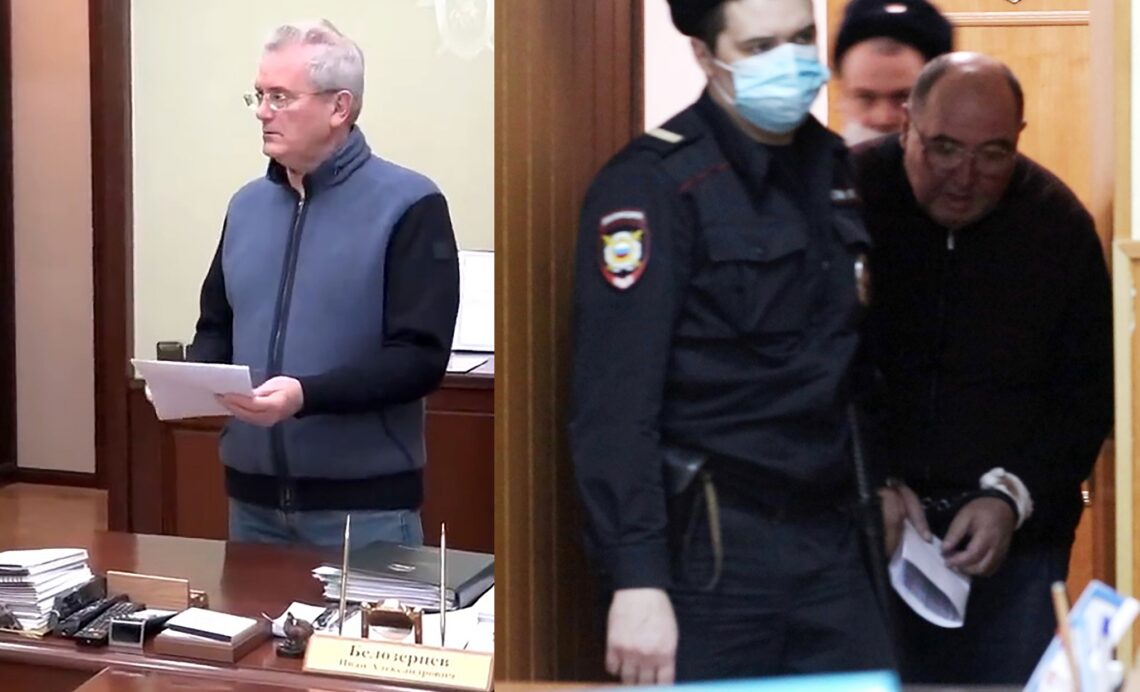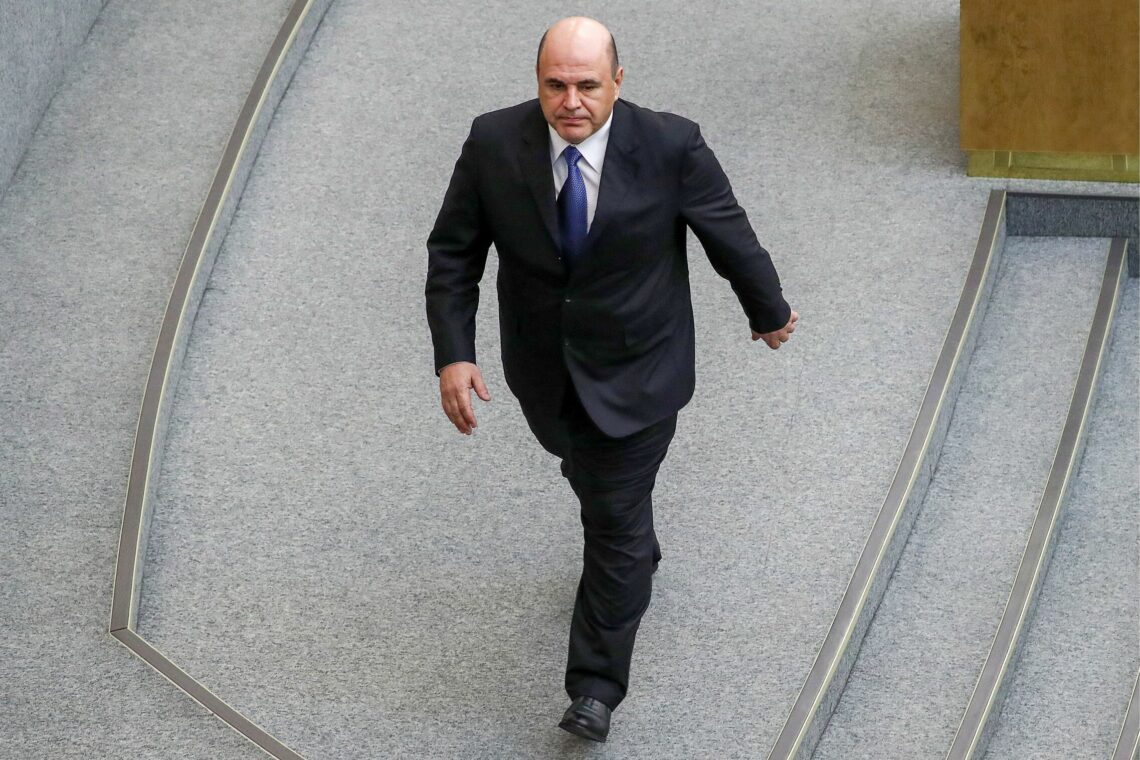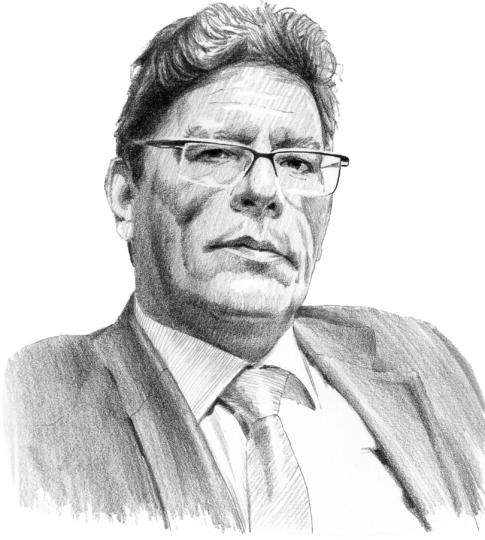The political meanings and uses of Russian corruption
Russia is often described as a hotbed of corruption, but while the country is undoubtedly corrupt, it is worth looking at informal networks with a more nuanced perspective. These systems perform several key functions in the Russian balance of power.

In a nutshell
- Corruption fulfills several functions in Russian politics
- The Kremlin has curtailed but not removed informal networks
- There could be a flurry of anti-corruption activity ahead of 2024
Using “corruption” and “Russia” in the same sentence has become a cliche; where there is one, there is the other. Russian corruption has a rich past, an impressive present and most likely a solid future. But, to understand the role it plays in Russian politics, it is necessary to make a distinction between the two well-established images of “corrupting Russia” and “corrupt Russia.”
The two faces of corruption in Russia
“Corrupting Russia,” visible on the international scene, is not very complex. While seeking to restore and boost its influence abroad, Moscow does a lot of things that could be broadly classified as bribery. These practices include scrapping bad loans, offering new ones (often equally bad), lobbying on the weapons market or advancing its pragmatic interests under the guise of cultural or medical programs.
It should be admitted, though, that Russia is not doing anything that is not done by other countries with extended interests abroad. After all, such gestures make up 90 percent of soft power, with the attractiveness of a nation’s culture amounting to only about 10 percent. The main difference is not just that Russia possesses considerably fewer resources to influence than its competitors; the Kremlin also engages in such behavior much less gracefully.
Beyond any reasonable doubt, Russia is an extremely corrupt country.
It looks as if Russia is still inspired by the operations of the CIA and other United States government agencies in the 1960s and 70s, when “suitcases with cash” were the most popular tool. This seems to be a typical case of catch-up development, if not a childish cargo cult.
Of course, it is not only the means used by politicians and governments that are important. Goals and their underlying values are crucial as well. Values, however, must be subject to open discussion. To determine which country is an evil empire and which is a good society, one has to know how to define good and evil. Only then can societies decide which methods of attack and defense are permissible in their eternal struggle. Unfortunately, politicians around the world almost never say anything meaningful in these terms. And when there is no substantial discussion about the ends, nitpicking over the means seems trivial.
Corruption in Russia is more complicated. Beyond any reasonable doubt, Russia is an extremely corrupt country. This has been confirmed once again by Alexey Navalny’s fate. It was his anti-corruption struggle that saw him crowned as the principal Russian opposition figure and that landed him in prison. But why is Russia corrupt, and how? And how do corruption and anti-corruption measures shape power and policy in Russia?
The nature of Russia’s corruption
It would be hard to call Russia’s informal networks anything other than corruption. Since the early 1990s, these connections offered Russian citizens modest social perks (basic sustenance, access to education and health services, protection from violence) that were virtually impossible to obtain through official channels. It was mostly these networks that allowed millions of businesses, both tiny and large, to emerge rapidly in a country where the capitalist spirit seemed to have been completely rooted out.
In politics, it was this system that helped prevent a return of communism in 1996, and that ensured a smooth transition of power from President Boris Yeltsin to Vladimir Putin in 2000. The phenomenon cannot even be described as state capture; for that to take place there needs to be a state to capture. Rather, the postcommunist state was slowly and painfully born out of the competitive and conflict-ridden interaction between informal networks.
In the 2000s, the new political regime took steps to limit the power of these interconnections. Though reasonably fruitful, the efforts did not remove the networks entirely – and were likely not intended to. Cliques were reshuffled, and some were dissolved altogether, like those of oligarchs Vladimir Gusinsky, Boris Berezovsky and Mikhail Khodorkovsky. Some new ones emerged, mostly thanks to ties with the new president and his closest proxies. Most importantly, the networks retreated from public view into the shadows. In the 1990s, it was almost de rigueur for elites to flaunt their informal influence on government policy and their criminal affiliations. In the new millennium, this behavior has slowly become improper and even unsafe.
The reconfiguration of those networks also powerfully boosted President Putin’s personal ratings, in accordance with the time-honored idea of “good tsar” vs. “bad boyars.” The importance of public opinion in Russia should not be neglected. Mr. Putin’s legitimacy is electoral and nothing else, and it is his popularity that cements his authority. If the clientele behaves too arrogantly, the patron becomes tainted. Thus boasting of having connections had to be curtailed, if not prohibited altogether.

The anti-corruption game
Repressing these individual displays of influence did not solve the fundamental problem of general injustice in the new social order. The blatant wealth inequality, the opaque power system and the regime’s blunt refusal to consider any radical change all remained. Bombastic announcements of hardline struggle against corruption only made the situation worse. This is the card Alexey Navalny attempted to use. After a long ramble around the political field, with nods to its liberal, democratic, nationalistic and xenophobic segments, he made anti-corruption revelations the main focus of his activities.
It appears that Mr. Navalny is unwilling to address, or that he disagrees with, other criticisms of the Putin regime put forward by liberal and pro-Western circles, like its confrontation with the West, its annexation of Crimea, its activities in Ukraine, the overall situation with constitutional freedoms and human rights, parliamentarism, federalism, and so forth. His only message revolves around the “beautiful Russia of the future” – a catchphrase of his. This beautiful Russia will emerge when what has been appropriated by “swindlers and thieves” (another catchphrase) will be “returned to the people” – by means unknown. Laws yet to be disclosed will be strictly observed. Offenders will be harshly punished, although again, it is unclear how harshly. Responsible Western strategists and policymakers should probably take this worrying haziness into account, despite the increasingly tragic turns of fate that have made the opposition figure a white knight in the eyes of many.
Mr. Navalny’s strategy had initially seemed quite reasonable. It made him Russia’s most noticeable protest leader, and rallied a group of devoted supporters that formed the core of his movement. Recently, though, the process started to lag. A glass ceiling has been reached and mass support is still lacking.
The reconfiguration of informal networks powerfully boosted President Putin’s personal ratings.
Even recent revelations of corruption involving President Putin and the Federal Security Service, something Mr. Navalny had long been steering clear of, did not result in anything significant. The disclosures were unimpressive; no one expects elites to be fully transparent and disinterested. The evidence given so far is somewhat shaky, but most Russians were unconcerned by this lack of definitive proof. Rather, upon hearing that President Putin perhaps owned a secret palace, they cynically asked: “How should the president of Russia be living, then?” How, indeed? There are no standards or traditions prescribing that the Russian president live modestly. Why should he not live like an Arab oil sheikh, rather than one of his European counterparts?
Targeted measures
Also, the authorities are catching up with Mr. Navalny’s crusading by constantly showing off their own anti-corruption struggle. The latter is, of course, selective and driven by the interests and feuds of elites. But the battle is still large in scale. Business publications are filled with reports on anti-corruption trials and the best stories occupy pride of place on official television channels, the main tool of government propaganda. No one is safe from accusations of corruption and prosecution in Russia, not even high-ranking members of the police, judiciary and security apparatus, ministers, governors, owners and top managers of large companies (both private and public), or important members of the United Russia party.
These targeted anti-corruption measures become especially important at times of instability, when the regime is being rearranged or when informal networks get reshuffled. This is what happened at the beginning of the Putin era, and after his return to the presidency in 2012, when the informal network that had emerged around Dmitry Medvedev was broken down. It was a rather soft dismantlement, but still, the influential Deputy Prime Minister Arkady Dvorkovich was accused of corruption and removed from government. Minister for Open Government Affairs Mikhail Abyzov was imprisoned on similar charges. Such turbulence is to be expected now that the next transfer of supreme power is inevitable, and it is very likely to happen before 2024. More and more, informal networks are competing for their position by the throne.
Mr. Navalny attempted to participate in the game, probably with the silent consent of one or several informal networks, raising the stakes on his own. What disturbed the authorities – the dominant patronal networks – was the encroachment of their monopoly on using corruption exposure as a political tool. Elites became nervous and canceled the unpredictable opposition activist’s previous safety guarantees to take him out, perhaps only temporarily. The game is still on.
The digital fight against graft
One final aspect worth considering is the rapid expansion of digital services in Russia, the operators of which are about to gain importance. The regime will increase its use of technology in public administration, government procurement, budget expenditure, tax and financial supervision and monitoring, even using advanced methods like location tracking and face recognition. The obvious model for the Russian authorities is China, where such advances have resulted in the concept of digital totalitarianism.
This is the shape of yet another anti-corruption front, less noticeable against the background of media scandals, but much broader. In some areas where corruption seemed ineradicable, like university admissions or traffic tickets, it has been almost fully rooted out. These tools have already made a real difference in curbing grassroots corruption, considerably changing the everyday life of citizens.
Anti-corruption measures become especially important at times of instability.
Russians are not ecstatic about having to change their ways, but they have no recourse to counteract the government’s digital expansion into their private lives. The convenience offered by new services seems to compensate for the trouble to some extent. Digital technologies are increasingly being used to discipline middle-range elites, but they could potentially be used against higher ranks as well. One of the principal proponents of total digitalization is the country’s second in command, who is by default seen as a potential successor to the president. Prime Minister Mikhail Mishustin was previously head of the Federal Tax Service and managed to upgrade it beyond recognition. Sapienti sat.
Scenarios
Summing up, there are, indeed, anti-corruption battles in Russia; they are fought in many places. Russia has a good chance of curtailing the scope of corruption and, in the medium term, to approach if not the standards of the Anglo-Saxon world and northern Europe, then at least those of Southern Europe.
This struggle is not motivated by any moral imperatives. Rather, it is driven by the redistribution of power between informal networks and, partially, by fiscal necessity. It is not connected to matters of geopolitical choice, liberalism, democracy, civil rights or freedom. Russia’s political oscillations along these values will be connected only tangentially to its fight against corruption, which will depend on the personal preferences and possible gains of the bosses of the winning coalition.
In the near future, we may expect this fight to flare up. Then, after yet another reshuffling, there will be a temporary lull. This, however, is not a cycle that takes us back to the beginning. It is a progression along a very slowly ascending spiral. At the moment, there is nothing on the horizon that could speed up the motion of this spiral, but there is nothing that could break it either.








